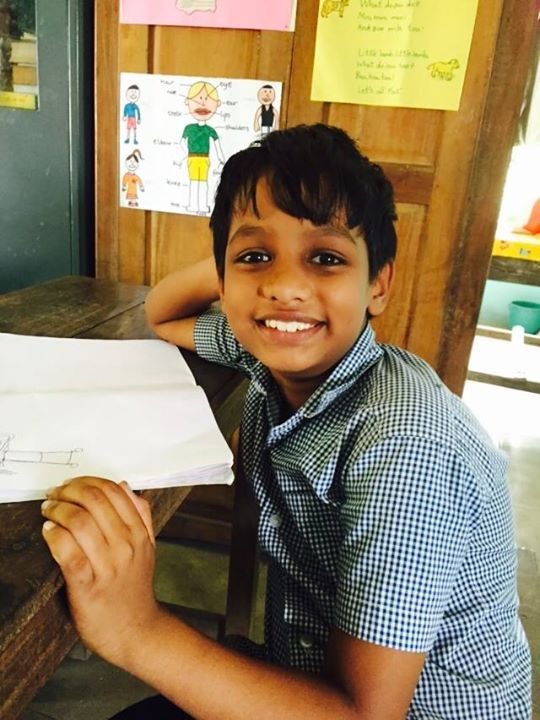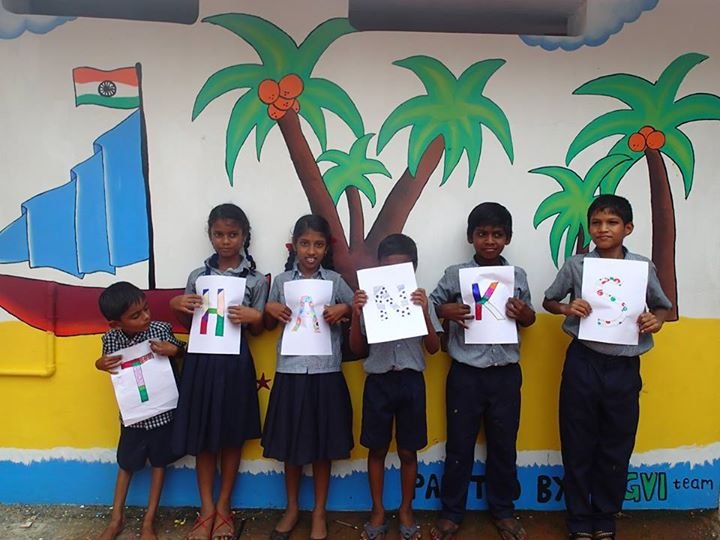By Tyrone Bennett | Head of Alumni Services
Dear Supporter,
For many years the main problems facing Indian schools were enrolment levels and attendance, however through a combination of the institution of Right of Children to Free and Compulsory Education Act (2010), improved access, the banning of child labour and a growing middle class the past six years have seen a consistent enrolment level of 96%+.
So if the issues of enrolment and attendance are dwindling problems, what issues face Government Schools in India in 2015? And what can GVI do to alleviate these issues and improve attainment levels?
The single biggest issue confronted by Thamaraparambu school is the number of pupils currently enrolled, twenty students spread across seven standards. The school offers fairly unique perks; free auto-rickshaw pick up from two separate slum settlements (funded by school staff), free breakfast every day (funded by GVI), Native English speakers delivering English lessons, a beautiful school environment, and a central location attached to the District Educational Authority’s headquarters meaning school staff don’t miss lessons when training or resource distribution occur. These excellent features combined with low enrolment encouraged further research into the situation.
All research quickly seemed to identify the rising proliferation of private, fee-paying schools across India, particularly here in Kerala. Across the board on all measured indicators children in government schools perform worse than their direct counterparts in private schools, this despite the fact that in government schools 85.9% of teachers have received formal training as opposed to only 43.8% of teachers in private schools and consistently earn more. So while private schools outperform government schools the need remains for a raising of standards in ‘free’ schools.
So what are GVI doing to address this gap?
In collaboration with the teachers GVI have instituted a clear and thorough English curriculum, enabling volunteers to come in and pick up directly where previous volunteers finished, preventing repetition and enabling better opportunities for monitoring and evaluation of students’ progress and continued to modernise and beautify the school environment, with development of a large-scale educational game and construction of library carts. Other commonly held causes for the ‘flight of the middle classes’ from government institutions are teacher absenteeism, indifference and/or use of corporeal punishment. Collectively with the school GVI have overseen the abolition of corporal punishment within Thamaraparambu, and through demonstration of effective teaching methodologies and good practise have begun to provoke interest and desire to develop and deliver lessons which are stimulating for both the teacher and the student.
Thank you for continuing support and helping us bridge this gap in the educational system in Kerala.
All the best.
GVI India
Links:
Project reports on GlobalGiving are posted directly to globalgiving.org by Project Leaders as they are completed, generally every 3-4 months. To protect the integrity of these documents, GlobalGiving does not alter them; therefore you may find some language or formatting issues.
If you donate to this project or have donated to this project, you can receive an email when this project posts a report. You can also subscribe for reports without donating.
Support this important cause by creating a personalized fundraising page.
Start a Fundraiser
